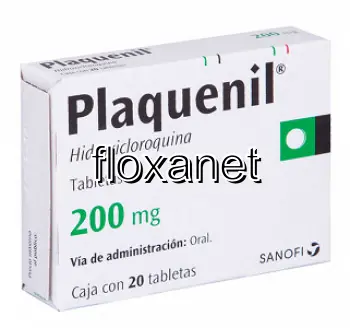| Package | Dosage | Price | Price per Dose | |
|---|---|---|---|---|
| Dosage: 200mg | ||||
| 360 pill | 200mg | NZD525.99 | NZD1.45 | |
| 270 pill | 200mg | NZD423.12 | NZD1.57 | |
| 180 pill | 200mg | NZD303.89 | NZD1.68 | |
| 120 pill | 200mg | NZD233.76 | NZD1.94 | |
| 90 pill | 200mg | NZD201.03 | NZD2.24 | |
| 60 pill | 200mg | NZD147.26 | NZD2.45 | |
| 30 pill | 200mg | NZD81.80 | NZD2.74 | |
| 20 pill | 200mg | NZD58.42 | NZD2.92 | |
| 10 pill | 200mg | NZD32.71 | NZD3.27 | |
| Dosage: 400mg | ||||
| 360 pill | 400mg | NZD790.16 | NZD2.20 | |
| 270 pill | 400mg | NZD682.62 | NZD2.52 | |
| 180 pill | 400mg | NZD523.65 | NZD2.90 | |
| 120 pill | 400mg | NZD402.08 | NZD3.34 | |
| 90 pill | 400mg | NZD331.95 | NZD3.69 | |
| 60 pill | 400mg | NZD243.11 | NZD4.04 | |
| 30 pill | 400mg | NZD133.23 | NZD4.44 | |
| 20 pill | 400mg | NZD98.17 | NZD4.91 | |
| 10 pill | 400mg | NZD53.75 | NZD5.38 | |

Hydroxychloroquine Description
Overview of Hydroxychloroquine
Hydroxychloroquine is a widely used medication originally developed to treat malaria. Over the years, it has gained recognition for its effectiveness in managing autoimmune conditions such as rheumatoid arthritis and lupus erythematosus. This medication belongs to the class of drugs known as antimalarials and possesses immunomodulatory properties that help reduce inflammation and modulate immune system activity. It has a well-established safety profile when used as prescribed, making it a popular choice among healthcare providers. In recent times, Hydroxychloroquine has also been discussed for its potential role in managing viral infections, notably during the early stages of the COVID-19 pandemic, though its efficacy in such cases remains under investigation. The medication is available only by prescription in most countries, emphasizing the importance of medical guidance when using it.
How Hydroxychloroquine Works
The primary mechanism of Hydroxychloroquine involves interfering with the acidity of certain cellular compartments, which affects the functioning of immune cells. It impairs the processing and presentation of antigens, thereby reducing immune responses that contribute to autoimmune diseases. Additionally, Hydroxychloroquine inhibits toll-like receptors, which play a key role in activating the immune system. This action helps diminish inflammation and alleviates symptoms associated with autoimmune disorders. When prescribed for malaria, it works by targeting the malaria parasites within red blood cells, preventing their growth and reproduction. Although its exact mechanisms are complex, Hydroxychloroquine’s immunomodulatory and antiparasitic effects make it a versatile medication with multiple therapeutic applications.
Uses and Benefits
Hydroxychloroquine is most commonly prescribed for autoimmune diseases such as rheumatoid arthritis, where it helps reduce joint swelling, pain, and fatigue. Patients often experience an improvement in their overall quality of life with consistent use. It is also effective in managing symptoms of lupus, including skin rashes and joint issues. For malaria, Hydroxychloroquine serves as a prophylactic and treatment option, especially in areas where the disease is prevalent. Some individuals also use Hydroxychloroquine for off-label purposes, but these uses should only be undertaken under medical supervision. Many users report that the medication, when taken correctly, significantly alleviates symptoms and contributes to better disease control.
Potential Side Effects and Precautions
While Hydroxychloroquine is generally well-tolerated, it can cause side effects in some individuals. Common reactions include nausea, stomach upset, headache, dizziness, and skin rashes. Rare but serious adverse effects involve retinal toxicity, which can lead to vision problems if the medication is used long-term or at high doses. Heart rhythm disturbances, such as QT prolongation, have also been reported. It is crucial for patients to have regular eye examinations and to inform their healthcare provider about any existing heart conditions before starting treatment. Pregnant and breastfeeding women should consult their physician to weigh the benefits and risks. Alcohol consumption and use of certain medications can increase the likelihood of adverse effects, so comprehensive medical guidance is essential during treatment.
Usage Guidelines and Recommendations
To maximize safety and effectiveness, Hydroxychloroquine should be taken exactly as prescribed by a healthcare professional. It is typically administered orally in the form of tablets. The medication is often initiated at a lower dose, gradually increased based on response and tolerability. Patients are advised to have regular follow-ups, including eye examinations, as long-term use can pose risks to eyesight. It is important to avoid sudden discontinuation and to report any unusual symptoms promptly. Additionally, patients should be aware of possible drug interactions, especially with medications affecting the heart or those that can cause bleeding. Proper adherence to dosage and monitoring schedules helps ensure optimal outcomes and minimizes side effects.
